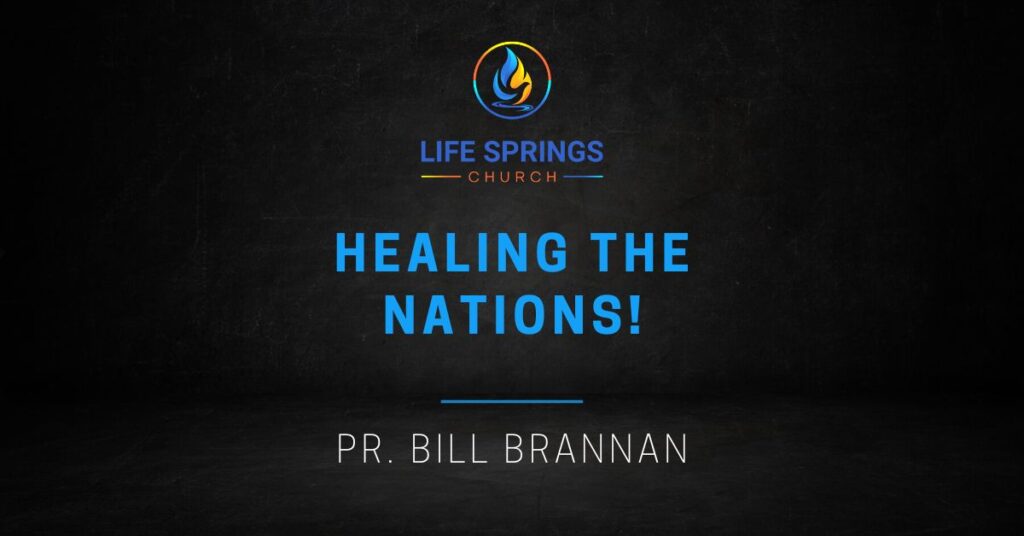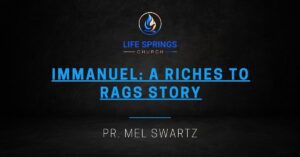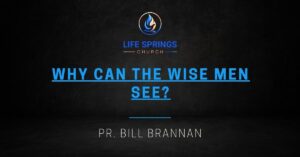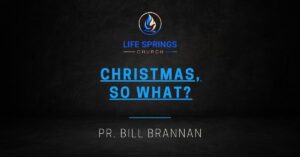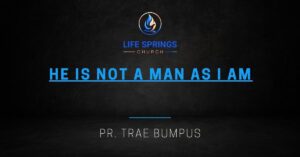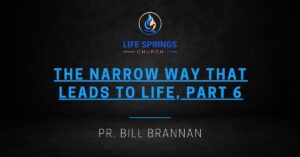The Hidden Cost of Unforgiveness: Healing the Nations


Photo by Yosuke Ota on Unsplash
Today’s message explores the profound impact of unforgiveness and how it can hinder personal and national healing. Drawing inspiration from biblical narratives, we delve into the importance of forgiveness in overcoming bitterness, offense, and hurt. This journey aims to highlight how embracing forgiveness can unlock a river of grace that flows from the Church, ultimately healing nations.
The River of Healing
The imagery of a river in Revelations 22 paints a beautiful picture of healing. This River of Life flows from the Throne of God, bringing life wherever it goes. The trees planted along its banks bear fruit every month, and their leaves are for the healing of the nations. This symbolism implies that nations need healing and that it is God’s heart to heal them. In our quest for healing, we must revisit and reflect on themes of offense and bitterness that plague our communities.
The Need for Healing
America is in desperate need of healing. One of the greatest spiritual battles we face today is the tendency to generalize and demonize each other. People tend to label entire groups based on the actions of a few, leading to division and strife. This blame game distracts us from our shared humanity and the fact that we are all created in the image of God. The Church is called to exemplify the reconciliation that the cross of Jesus offers, breaking down walls of separation among people.

Photo by Vonecia Carswell on Unsplash
Forgiveness: A Path to Liberation
The Greek word for forgiveness, “aphiemi,” means to let go, release, or liberate. This understanding of forgiveness highlights its transformative power. It’s not merely about cleansing a slate but about restoring relationships with God and one another. True forgiveness opens prison doors and liberates us from the shackles of bitterness and hurt.
Mature vs. Weak Faith
In Romans 14, the distinction between mature and immature faith is discussed. Mature believers are encouraged to bear with one another and not be easily offended. This perspective fosters unity and compassion, allowing us to see beyond our differences. In contrast, a weak faith leads to division and strife, as seen in the behaviors of the Israelites during their wilderness journey.

Photo by Michael Glazier on Unsplash
Lessons from Moses at Kadesh
In Numbers 20, we find a critical moment in Moses’ leadership. The Israelites, facing a lack of water, became demoralized and confronted Moses with their frustrations. Despite being a great leader who had spoken to God face to face, Moses struck the rock instead of speaking to it as commanded. This act of anger and frustration stemmed from his own unresolved wounds and bitterness, which ultimately led to his exclusion from the Promised Land.
The Testing of Faith
The rock that provided water for the Israelites symbolized Christ, who offers living water. However, when they reached Kadesh and found the rock dry, it tested their faith. God wanted to reveal the deep-seated fears and insecurities within their hearts. This moment was not just about physical thirst but about spiritual awakening and recognizing their need for God’s provision.

Photo by Ben White on Unsplash
Confronting Our Wounds
Moses’ struggle illustrates how past wounds can affect our present actions. His initial rejection by the Israelites left a mark on his heart, causing him to misinterpret their needs and respond with anger. This cycle of hurt can perpetuate division and bitterness in our lives, making it essential for us to confront and heal from these wounds.
The Importance of Forgiveness
Forgiving others is crucial for personal liberation. Luke 17:3-5 emphasizes the need to forgive repeatedly, even when it feels difficult. The disciples asked Jesus to increase their faith in response to His command to forgive, highlighting the challenge it poses. However, true forgiveness is liberating; it breaks the chains that bind us to our past hurts.

Photo by Pablo Lancaster Jones on Unsplash
Healing Through Grace
Forgiveness is not just a personal act; it has the power to heal nations. When we let go of our offenses, we create a space for God’s grace to flow through us. The river of grace can bring life not only to our hearts but also to the communities and nations we inhabit. The call to forgive is a call to love, to break down barriers, and to foster unity.
Practical Steps Toward Healing
- Recognize the Need for Healing: Acknowledge the areas in your life where you feel hurt or offended.
- Seek God’s Help: Pray for healing and the ability to forgive those who have wronged you.
- Practice Forgiveness: Make a conscious effort to release grudges and extend grace to others.
- Engage in Community: Foster an environment of love and support within your community or church.

Photo by Tim Marshall on Unsplash
The Power of Unity
As we embrace forgiveness, we can unite in our mission to bring healing to our nations. The Church must stand as a beacon of hope and reconciliation, demonstrating the love of Christ in action. By addressing the roots of bitterness and offense, we can cultivate a culture of forgiveness that transforms lives and communities.
A Call to Action
Let us not be like Moses, who, despite his incredible faith, allowed his wounds to prevent him from entering the Promised Land. Instead, we are called to recognize our shared humanity and the healing power of forgiveness. Through the grace of God, we can overcome our hurts and become agents of change in a world that desperately needs healing.

Photo by Katherine Hanlon on Unsplash
Conclusion: Embrace the River of Life
The river of life and healing flows from the heart of God. If we are to experience the fullness of life that He offers, we must be willing to forgive and let go of our burdens. As we invite the Holy Spirit to fill us, we become conduits of grace, allowing God’s love to flow through us and into the world.
In summary, the hidden cost of unforgiveness is far too great. Let’s choose to forgive, heal, and restore relationships, both personal and communal, that we may see the river of life flow freely through our hearts and nations.
Healing the Nations
Sermon Outline
- The river of life
- Scripture pictures a river of life flowing from the throne of God in Rev. 22, and wherever it goes that which is dead lives. On the banks of the river are trees bearing fruit, whose leaves heal the nation.
- I believe there is a river of grace and life that can flow from the church again and actually heal nations.
- The implication is that nations need healed!
- Today’s message is part of a journey seeking the healing of nations, so we will revisit themes and ideas and hopefully move them forward.
- The central idea we are addressing is healing a root of offence, hurt and bitterness.
- America needs healing.
- Generalization and demonization
- COVID, Conservative & Liberal, etc.
- Vision for a community built around the cross! (Eph. 2:14-18)
- Foundational ideas
- ἀφίημι aphiēmi let go, leave, leave alone, release, forgive, ἄφεσις, εως, ἡ aphesis release (noun), liberation, forgiveness [1]
- Romans 14 – mature and immature
- Rabbi Sacks – speaking well of someone to their enemies
- IS THIS FURTHER OR KILLING THE KINGDOM/LIFE?
- KNOWING/SEEING KING JESUS AND THE WORLD UNDER HIS GOVERNMENT.
- Now we are going to explore a scriptural passage that will provide a starting point to look at healing a root of offence.
- At Kadesh – 40th year in the wilderness.
- Numbers 20:2–12 (NKJV) — 2 Now there was no water for the congregation (NO WATER); so they gathered together against Moses and Aaron. 3 And the people contended with Moses and spoke, saying: “If only we had died when our brethren died before the Lord! (TOTALLY DEMORALIZED NOT REBELLIOUS)4 Why have you brought up the assembly of the Lord into this wilderness, that we and our animals should die here? 5 And why have you made us come up out of Egypt, to bring us to this evil place? It is not a place of grain or figs or vines or pomegranates; nor is there any water to drink.” (HOPE DEFERRED)6 So Moses and Aaron went from the presence of the assembly to the door of the tabernacle of meeting, and they fell on their faces. And the glory of the Lord appeared to them. 7 Then the Lord spoke to Moses, saying, 8 “Take the rod; you and your brother Aaron gather the congregation together. Speak to the rock before their eyes, and it will yield its water; thus you shall bring water for them out of the rock, and give drink to the congregation and their animals.” 9 So Moses took the rod from before the Lord as He commanded him. 10 And Moses and Aaron gathered the assembly together before the rock; and he said to them, “Hear now, you rebels! Must we bring water for you out of this rock?” 11 Then Moses lifted his hand and struck the rock twice with his rod; and water came out abundantly, and the congregation and their animals drank. 12 Then the Lord spoke to Moses and Aaron, “Because you did not believe Me, to hallow Me in the eyes of the children of Israel, therefore you shall not bring this assembly into the land which I have given them.”
- THE ROCK QUIT GIVING WATER – 1 Corinthians 10:2–3 (NKJV) —2 all were baptized into Moses in the cloud and in the sea, 3 all ate the same spiritual food, 4 and all drank the same spiritual drink. For they drank of that spiritual Rock that followed them, and that Rock was Christ.
- The rock quit giving water – the testing of our faith… Was their whole life and identity a lie? God was bringing them in!
- Rephidim – when Moses struck the rock.
- What was the difference? Rebellious vs. demoralized – Moses had a trauma response that colored his perception of reality.
- The prophetic rightness that Moses could not enter the Promised Land – it is entered by grace.
- Moses misrepresented the heart of God and had no grace for the people – he was out of sync with God!
- Moses had a root of offence, hurt and bitterness in his heart. It began when the people misunderstood his heart toward them, seen again at the burning bush.
- This was Moses!!! WAS THE END OF HIS LIFE A TRAGEDY?
- Samson, Stephen – the prophetic testimony of his end! -Balaam!
- Psalm 116:15 (NKJV) — 15 Precious in the sight of the Lord Is the death of His saints.
- Numbers 20:2–12 (NKJV) — 2 Now there was no water for the congregation (NO WATER); so they gathered together against Moses and Aaron. 3 And the people contended with Moses and spoke, saying: “If only we had died when our brethren died before the Lord! (TOTALLY DEMORALIZED NOT REBELLIOUS)4 Why have you brought up the assembly of the Lord into this wilderness, that we and our animals should die here? 5 And why have you made us come up out of Egypt, to bring us to this evil place? It is not a place of grain or figs or vines or pomegranates; nor is there any water to drink.” (HOPE DEFERRED)6 So Moses and Aaron went from the presence of the assembly to the door of the tabernacle of meeting, and they fell on their faces. And the glory of the Lord appeared to them. 7 Then the Lord spoke to Moses, saying, 8 “Take the rod; you and your brother Aaron gather the congregation together. Speak to the rock before their eyes, and it will yield its water; thus you shall bring water for them out of the rock, and give drink to the congregation and their animals.” 9 So Moses took the rod from before the Lord as He commanded him. 10 And Moses and Aaron gathered the assembly together before the rock; and he said to them, “Hear now, you rebels! Must we bring water for you out of this rock?” 11 Then Moses lifted his hand and struck the rock twice with his rod; and water came out abundantly, and the congregation and their animals drank. 12 Then the Lord spoke to Moses and Aaron, “Because you did not believe Me, to hallow Me in the eyes of the children of Israel, therefore you shall not bring this assembly into the land which I have given them.”
- The root of offence, hurt and bitterness.
- Luke 17:3–5 (NKJV) — 3 Take heed to yourselves. If your brother sins against you, rebuke him; and if he repents, forgive him. 4 And if he sins against you seven times in a day, and seven times in a day returns to you, saying, ‘I repent,’ you shall forgive him.” 5 And the apostles said to the Lord, “Increase our faith.”
- John Bevere – The list of Jesus’s miracles and wonders was so inexhaustible that, according to the Bible, the world of books could not contain it. Never before had mankind witnessed the miraculous hand of God in such an overwhelming and tangible way. Amazed and awed as the disciples were, it was not these miracles that pushed them to the brink of doubt. No, that challenge would come later toward the end of Jesus’s earthly ministry. Jesus had instructed His disciples, “If your brother sins against you . . . seven times in a day, and seven times in a day returns to you, saying, ‘I repent,’ you shall forgive him.” Their immediate response to Him was, “Increase our faith” (Luke 17:3–5). The miracles had not inspired a cry for greater faith, or for the raising of the dead, or for a calmed sea; but the simple command to forgive those who have wronged you![2]
- The implication of this passage are people in community and relationship. The cause for offence happens continuously.
- People today often run from the situation and they find healing and forgiveness, but this is not the real challenge of the passage.
- Moses faced this challenge for 40 years!
- The difficulty revealed what was in the heart of Moses and the people.
- Hebrews 12:14–15 (NKJV) — 14 Pursue peace with all people, and holiness, without which no one will see the Lord: 15 looking carefully lest anyone fall short of the grace of God; lest any root of bitterness springing up cause trouble, and by this many become defiled;
- Proverbs 18:19 (NKJV) — 19 A brother offended is harder to win than a strong city, And contentions are like the bars of a castle.
- Luke 17:3–5 (NKJV) — 3 Take heed to yourselves. If your brother sins against you, rebuke him; and if he repents, forgive him. 4 And if he sins against you seven times in a day, and seven times in a day returns to you, saying, ‘I repent,’ you shall forgive him.” 5 And the apostles said to the Lord, “Increase our faith.”
- It is easy to fall prey to a root of offence, hurt and bitterness.
- When we are hurt we put up walls – Trauma, touching wounds, triggers, frustration.
- Past hurts often choke our expectations.
- We can have a root of offence, hurt and bitterness and not even realize it.
- It can be based on reality or false reality, but the offence is real!
- Let the river flow to heal the nations!
- Hopefully just by studying the root of offence, hurt and bitterness, it has created a hunger in us to participate in healing the nations.
- The Holy Spirit – John 7:37–39 (NKJV) — 37 On the last day, that great day of the feast, Jesus stood and cried out, saying, “If anyone thirsts, let him come to Me and drink. 38 He who believes in Me, as the Scripture has said, out of his heart will flow rivers of living water.” 39 But this He spoke concerning the Spirit, whom those believing in Him would receive; for the Holy Spirit was not yet given, because Jesus was not yet glorified.
[1] Horst Robert Balz and Gerhard Schneider, Exegetical Dictionary of the New Testament (Grand Rapids, Mich.: Eerdmans, 1990–), 181.
[2] Bevere, John. The Bait of Satan, 20th Anniversary Edition: Living Free from the Deadly Trap of Offense . Charisma House. Kindle Edition.

